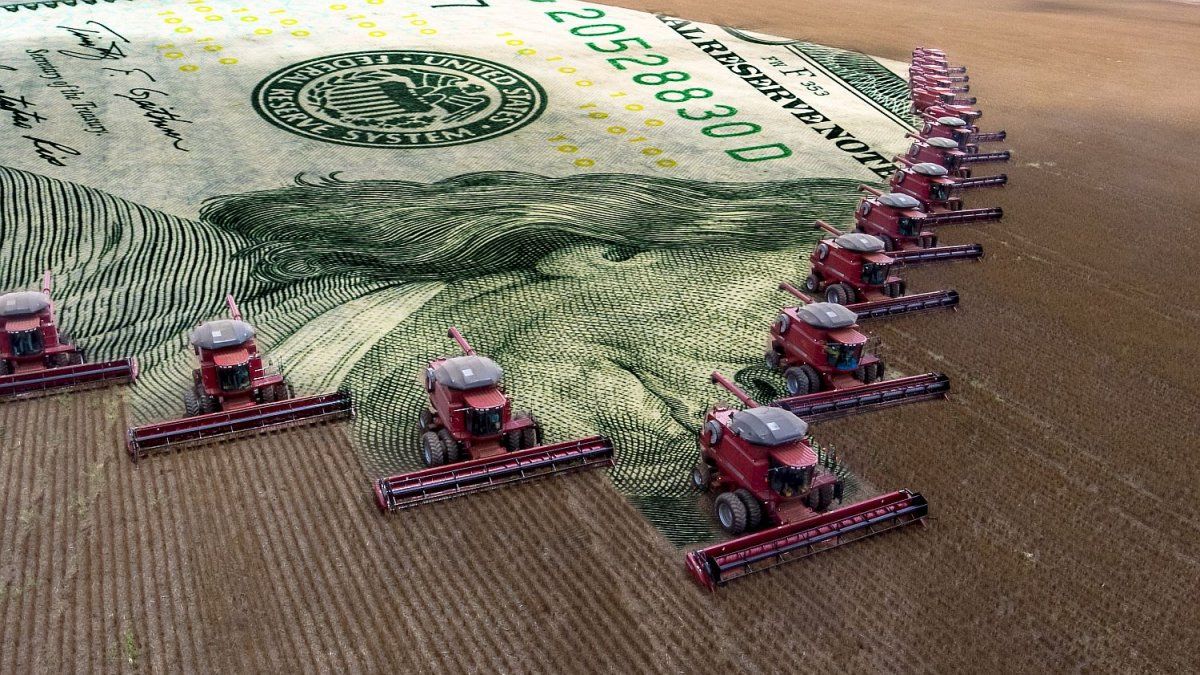The picture is further complicated by additional factors. On the one hand, at a financial level, uncertainty is amplified by the situation in China, where the stock markets they can’t find a flat and this Monday they deepened the poor performance with the Shanghai Composite, which gave up more than 1%. This worsens a crisis that in the last six months has seen a red 17.82%. While, the Hang Seng of Hong Kong accumulates in that same period a drop in 20.62%.
The Chinese crisis under the magnifying glass of experts
And as the advisor and expert in the market explains, Gaston Lentiniin statements to this medium, in the last ten years, Chinese stocks have experienced a downward trend, in contrast to the continuous growth of American stocks.
“Drastic regulatory changes, like the statement that education companies should be nonprofitand the disappearance of the founder of Alibabamarked a change of course in Chinese politics and economy,” he warns.
For Lentini, the financial crisis in China, particularly with the liquidation of a major developer and construction company due to its overwhelming debt (Evergrande), raises global concerns. And, in that context, the advisor slips that “the possible decrease in Chinese demand for Farm productssuch as soybeans”, could have a negative impact on the values of commoditieswhich – added to the local climate factor – could weigh down the impact of the thick expected for March.
Thus, for the analyst, this year is full of uncertainties, “with the urgent need for the United States to reduce reference interest rates to counteract an expected lower growth worldwide”, as expected by the International Monetary Fund (IMF). Something from which emerging raw material exporting countries, such as Argentina, could benefit.
dragon china.jpg
For Roman Danteprofessor at the Austral University and Fyo analyst, expert consultant in agriculture and markets, ““China is giving a lot of complicated signals.” The agribusiness expert maintains that, for the first time, in the Asian giant, the total population does not grow, industrial production falls for the fourth consecutive month and, as if that were not enough, “They are in the process of liquidating pigs to try to raise the price, but this makes corn prices fall so much, like soybeans due to lower consumption,” he explains.
According to Romano, the Chinese authorities are looking for a way to consume more corn and less soy flour in the mixtures, as well as accelerate the authorization process for seeds transgenic plants to implant soybeans in China. A setback for Argentina, since this would allow it to increase yields and reduce purchases.
“All this news is negative for prices, some are immediate, others more medium term, but this is discounted in the prices,” says the teacher.
China in trouble: how the blow impacts Argentina
As said, in the current global scenario, prices face challenges. According to Tejera, there are uncertainties regarding the future of Chinese demand, “especially when it comes to soybeans“.
The analyst points out that the market perceives some weakness in US exports, since prices in Chicago have seen a marked decline since the end of 2023. Furthermore, the offer shows tranquility, backed by solid production volume in Brazil“despite some doubts that persist regarding the final result of the campaign.”
This could directly affect Argentine exports, since China is an important trading partner for Argentina and any decrease in demand would result in a reduction in exports of agricultural products, like soybeans. That could affect the entry of foreign currency into the country and hinder the long-awaited economic stability.
Without greater expectations, fewer dollars for the BCRA
For his part, the markets and agribusiness analyst Salvador Vitelli, maintains that, according to his analysis, which always showed a more moderate and “not record” harvest, it is beginning to be confirmed: “that record harvest” is indeed moving away. However, the man from Romano Group maintains that the harvest is going to normalize a little compared to last year, “but not much more“.
What can aggravate the situation for Vitelli is the crisis in the Asian markets, which can add pressure, since, strictly speaking, “the commodities market is very integrated into the world, where all the variables influence and, without a doubt, , the crisis in the Asian markets could put pressure on them, because one of the main countries that drives demand is China.”
Thus, as Vitelli indicates, a collapse of the financial markets in those latitudes, “can also hit the local market,” especially in futures contracts, with unwinding of positions and so on, and of course, also in a lower demand. Thus, “That also hits us, not only because of the quantities, but also because of the prices.“.
The outlook for agricultural markets “is not good”
When it comes to analyzing the outlook for agricultural markets, “they are not very good.” Vitelli points out that there are no prospects for very strong increases in both soybeans and corn, he even slips that regarding soybeans “there are some rather pessimistic perceptions“.
Hence, what was going to be a record harvest, “Not only will it not be, but also prices have become quite depressedand also the exchange rate issue plays a very strong role at the local level,” warns the analyst, who finally mentions the problem of export duties and “its impact on producers, who receive a significantly lower value for their products when liquidating them in the international market”.
This situation can cause delays in sales, since producers can choose to retain their grains as a savings strategyespecially during periods of low prices in the local market.
Thus, the adverse weather conditions, marked by high temperatures, have led some analysts to call the “Peronist soy“, since it has had cycles of very good yields that coincide with populist governments, except last year, when a tremendous drought lowered yields very sharply.
Meanwhile, for now, premium soybeans are at a critical moment, which worsens with the stock market crisis in China, where financial uncertainty and the possible decrease in demand for agricultural products could impact locally. These factors, together with the pessimistic outlook for agricultural markets and the local exchange rate issue, They point to a very challenging scenario for the harvestprices and economic stability in Argentina.
Source: Ambito
I am a 24-year-old writer and journalist who has been working in the news industry for the past two years. I write primarily about market news, so if you’re looking for insights into what’s going on in the stock market or economic indicators, you’ve come to the right place. I also dabble in writing articles on lifestyle trends and pop culture news.




